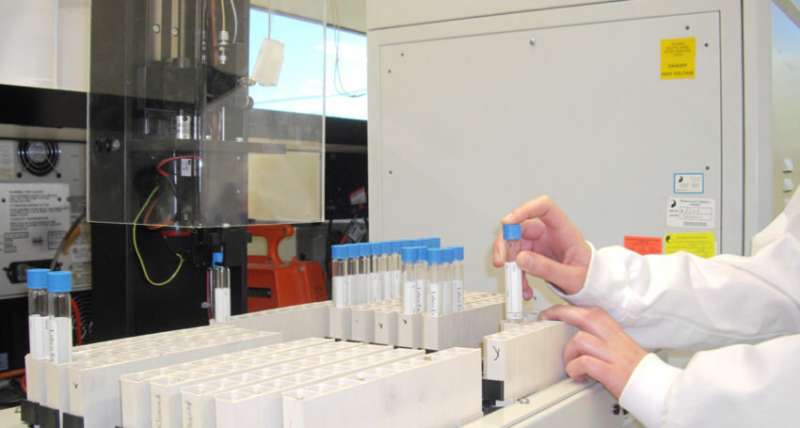Non-invasive test is breath of fresh air for diagnosing gut diseases

Australian researchers have developed a less invasive and cheaper test to detect gastro-intestinal illnesses – a breath sample.
The new method developed at Flinders University in Adelaide, South Australia, would reduce the number of invasive procedures such as endoscopies or colonoscopies. Instead, patients with gut problems would be diagnosed by simply measuring the amount of the Dipeptidyl peptidase-4 (DPP4) enzyme found in their breath.
Lead researcher Dr. Roger Yazbek said the specific DPP4 enzyme is produced in the small intestine and breaks down dietary proteins that have been associated with coeliac disease and associated gut damage.
"This breath test represents a potentially new way to non-invasively measure gut health," Dr. Yazbek said.
"Not only will these tests improve patient quality of life but potentially save the health care system time and money, particularly if adapted for point-of-care testing in rural and remote areas."
Dr. Yazbek said the DPP4 test started with a patient drinking a "special liquid" and then blowing into a vial through a straw.
The breath sample is then examined on an isotope ratio mass spectrometer for the DPP4 enzyme.
Coeliac patients have a lowered level of the enzyme, which is linked to difficulty breaking-down gluten.
In Australia, while about 400,000 endoscopic procedures are performed at a cost of almost $500 million, more than 15 per cent of these procedures are deemed unnecessary.
Dr. Yazbek said endoscopies or colonoscopies were often a waste of time and energy for the patient and the healthcare system.
"A patient may visit a doctor because they're feeling some abdominal pain or chest pains," he said.
"So an endoscopy might be prescribed, and it turns out that there's nothing there. A lot of those procedures are deemed low care so they're not really providing any significant benefit to the patient."
Dr. Yazbek said invasive procedures like these were also stressful, particularly to children.
"I worked in a hospital and I would often go into the recovery room after kids had received an endoscopy, and it was often a traumatic experience," he said.
"They're waking up in a strange environment and they've just had a procedure – where they've had to have that tube go down their throat – and they're in a little bit of pain from that.
"To be able to reduce the anxiety that's associated with that procedure is very beneficial."
Dr. Yazbek said he was also encouraged to develop the breath test after watching family members suffer through countless procedures.
"One of my family members has gastric cancer and she's gone through diagnosis, surgery and all those procedures and someone else close to me has had many colonoscopies," he said.
"When you look at what they have to go through it drives you to try and discover better options for them."
Dr. Yazbek and his team of Flinders University researchers are about to commence trails for the test at the Women's and Children's Hospital in Adelaide with a view to commercialising the diagnosis method within a decade.
The research published today in international journal Scientific Reports.
More information: Roger Yazbeck et al. Development of a 13C Stable Isotope Assay for Dipeptidyl Peptidase-4 Enzyme Activity A New Breath Test for Dipeptidyl Peptidase Activity, Scientific Reports (2019). DOI: 10.1038/s41598-019-41375-y
















